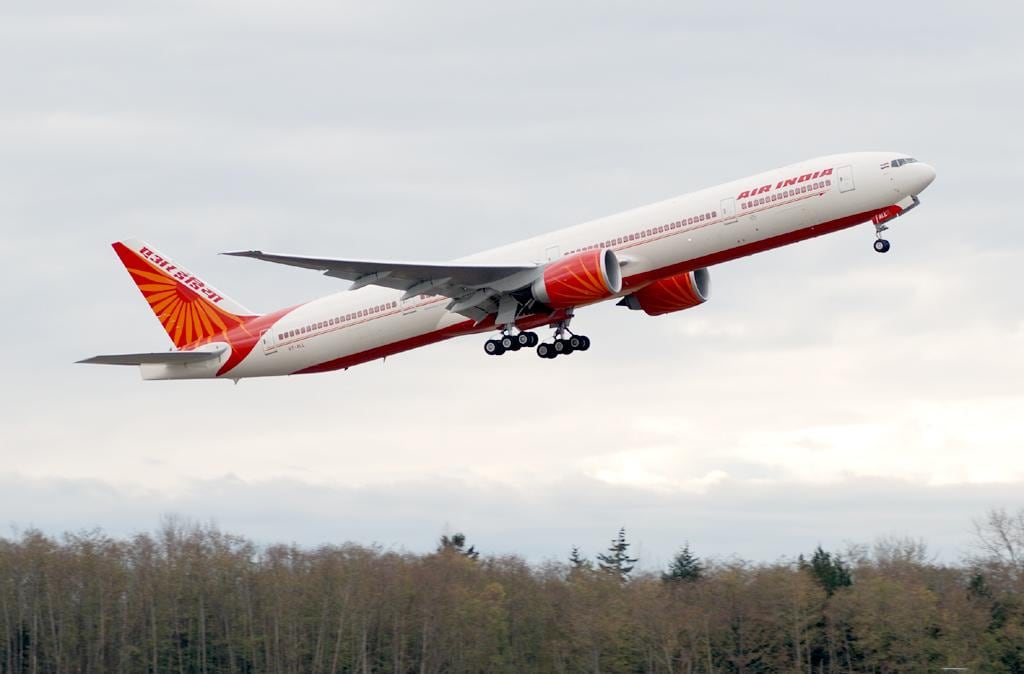For Air India, goodbye to state control doesn’t mean Tata to troubles
It’s been more than a year since its acquisition of the hub and Air India, and it has not only made great strides in terms of transformation and turnaround, but has also faced major controversies over issues ranging from pilots’ dissatisfaction to incompetent handling of some sensitive matters.
Although it’s been a year since the move, the troubles don’t seem to be over for the airline, which is now under the management of Tata.
However, pilots under its two unions – the Indian Commercial Pilots Association (ICPA) and the Indian Airline Pilots’ Association (IPG) – recently agreed to a revised compensation structure, but this came after a long standoff between the unions and the airlines’ management.
On April 19, Air India’s ICPA and IPG rejected the airline’s proposed new pay structure.
At the heart of the dispute is the reduction of flying allowance from 70 hours to 40 hours each month under the new structure, which the pilots believe is unfair.
Both unions have warned of possible “industrial disruption” if management goes ahead with the new terms without their consent. While Air India stated that it would “continue to deal with the rest of its staff”, the airline took a tough stance on the issue, saying that there were “no recognized unions in Air India”.
This is the first pay revision by the Tata group-owned Air India since its takeover last year, and it will affect all 3,000 pilots across the four airlines – Air India, Air India Express, AirAsia India and Vistara.
The source revealed that during the city council meeting held on May 4, nearly 800 pilots attended who had not yet agreed to the new compensation structure. The meeting was chaired by Air India’s Chief Operating Officer, Captain Rajwinder Singh Sandhu, who is also a pilot.
In response to requests from the pilots, who had previously rejected the revised compensation structure, the airline has given an extension until the end of May to sign the new contracts.
According to the source, a large number of pilots remained resolute in their position by not signing the new contracts.
In recognition of the ongoing deliberations and the concerns raised by the pilots, the airline has decided to extend the deadline for pilots to reach a decision on the new contracts.
The extended deadline now allows pilots to the end of this month to make selections, whereas the original deadline for accepting the revised compensation structure was set at April 30.
To address the new terms of service and chart a way forward, the unions held a joint virtual meeting, bringing their members together.
“The purpose of this meeting is to discuss the revised compensation structure in detail and to determine the future course of action,” the sources said.
However, Tata’s management has engaged its first set of controversies with the appointment of İlkir Aycı, the former chairman of Turkish Airlines, as CEO and chief executive officer of the airline in February 2022.
The appointment caught RSS subsidiary Swadeshi Jagran Manch by surprise, which had expressed reservations about the appointment of former Turkish Airlines chairman Tata Group as Managing Director and CEO of Air India. Amidst the controversies, Ilker Aycı’s appointment could not continue because he refused the job.
Subsequently, Air India’s top management faced discontent with senior pilots who protested several issues ranging from ignoring Indian pilots and hiring foreign counterparts for hefty salary packages to an alleged change in the conditions of service of member pilots.
IPCSA has issued several notifications requiring Air India management to comply with the jurisdiction of the Industrial Disputes (ID) Act, including Article 9a, in letter and spirit; and not to make any change to the conditions of service for pilots without following the applicable provisions of the Identity Law.
It also required the Pilots Authority to participate, as representatives of the pilots, in the deliberations regarding any change in the conditions of service before taking any urgent steps.
She said it was important for the morale of the pilots and to maintain trust between the pilots and the management of Air India Ltd., especially in view of the transition to the new management, that the pilots be consulted and taken into consideration before any condition. of their service, especially when that change is ultimately to their detriment.
Then, the urinating incident on 26 November 2022 on Air India’s New York-Delhi flight and the mishandling of issues arising thereafter embarrassed Tata to such an extent that Air India’s CEO and Chairman of Tata had to issue statements. N Chandrasekaran, chairman of Tata Sons and Air India on January 8, said the airline’s response to the incident on its New York-Delhi flight on November 26 should have been “much faster”.
Aviation regulator DGCA on January 20 imposed a fine of Rs 30 lakh on Air India and suspended the pilot’s driving license for three months in the urination case of Air India that occurred on November 26, 2022. Moreover, the regulator also imposed a fine of Rs 3 lakh On the services of the Flight Director of Air India for failure to perform his duties.
In another case, the Directorate General of Civil Aviation imposed a fine of Rs 10,000 on Air India for failure to report the accidents that occurred on AI-142 Paris-New Delhi flight on December 6, 2022. Two accidents occurred in the flight. while one passenger was caught smoking in the toilet, was intoxicated, and did not comply with the crew’s instructions; Another was alleged to have rested on an empty seat and a blanket belonging to another female passenger when she went to the restroom.
– Jans
SBR / bg
(Only the title and image for this report may have been reworked by the Business Standard staff; the rest of the content is generated automatically from a shared feed.)
